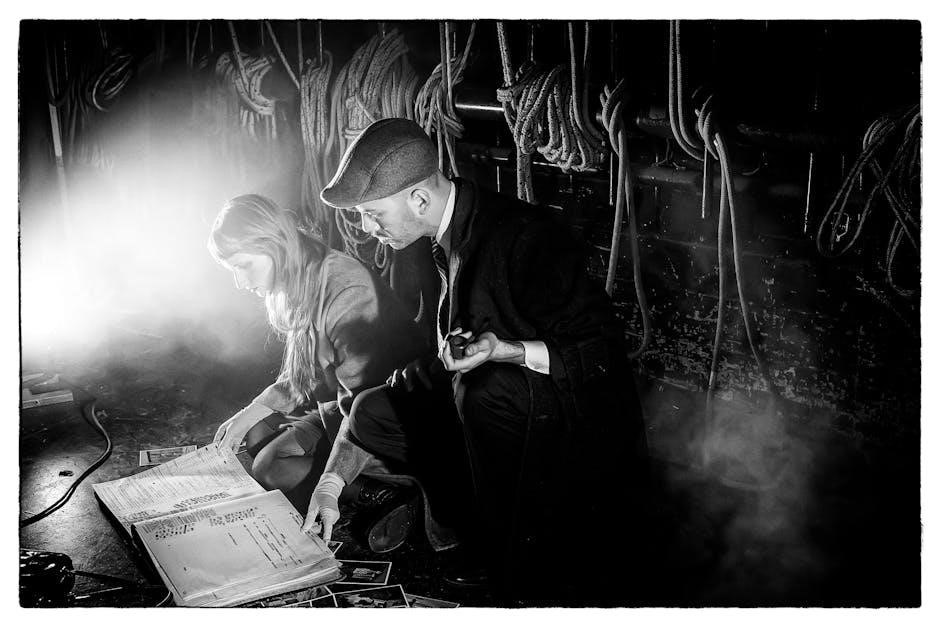
the story of film mark cousins pdf
The Story of Film: Mark Cousins ⏤ Article Plan
Mark Cousins’ “The Story of Film” is a comprehensive exploration of cinema history, covering silent films to modern blockbusters. The book examines the art of filmmaking, highlighting directors like Souleymane Cissé and Yasujiro Ozu. Accessible in PDF/ePUB format, it emphasizes historical influences on filmmakers.
Overview of “The Story of Film”
“The Story of Film,” authored by Mark Cousins, presents a sweeping and insightful journey through the history of cinema. This book isn’t just a chronological recounting of films; it’s an exploration of the art form itself. Cousins delves into the evolution of cinema from its humble beginnings as a “photographic, largely silent, shadowy novelty” to its current status as a global phenomenon filled with modern blockbusters. He emphasizes the creative processes and artistic choices that have shaped the movies we know and love.
Cousins examines how filmmakers are influenced not only by each other but also by the historical events unfolding around them. He doesn’t focus on the business or the audience aspects of cinema; rather, he shines a spotlight on the directors, the visionaries behind the camera. Figures like Malian director Souleymane Cissé and Japanese master Yasujiro Ozu are featured, representing a global perspective on cinematic innovation.
The book stands out for its accessibility, making it engaging for both film enthusiasts and casual readers. Furthermore, its availability in PDF and ePUB formats makes it convenient for a wide audience to access and enjoy this comprehensive history of film. It is a magnum opus that promises a deep dive into the world of cinema.
Mark Cousins: Background and Career
Mark Cousins is an Irish filmmaker, film critic, and presenter known for his passion and deep knowledge of cinema. He has established himself as a prominent figure in the world of film analysis and appreciation. Cousins’ career spans various roles, showcasing his diverse talents and contributions to the field. He has worked as a producer, bringing compelling stories to the screen, and as a presenter, sharing his insights and enthusiasm with audiences worldwide.
His work reflects a broad understanding of film history and theory. Cousins is not only a commentator but also a creator, with a filmography that includes documentaries exploring different facets of cinema. Before creating films, he wrote “The Story of Film” almost 30 years ago. His unique perspective and engaging style have made him a respected voice in film criticism. His commitment to exploring the art of cinema is evident in his various projects, making him a significant influence on film discourse.
Cousins met with Cineuropa to discuss his documentary “A Story of Children and Film”. He has a profound ability to connect with audiences through his work, making complex topics accessible and engaging. His career exemplifies a dedication to promoting and preserving the art of filmmaking.
Key Themes Explored in the Book
“The Story of Film” by Mark Cousins delves into several key themes that shape the landscape of cinema. One prominent theme is the evolution of filmmaking techniques, tracing the journey from early silent films to contemporary digital productions. The book explores how technological advancements have influenced storytelling and visual aesthetics. Another crucial theme is the influence of various cultures and global perspectives on cinema. Cousins examines how different societies have contributed to the art form, creating a rich tapestry of cinematic styles and narratives.
The book also emphasizes the role of directors as artists, highlighting their unique visions and creative processes. Cousins delves into the works of filmmakers from around the world, showcasing their individual styles and thematic concerns. Furthermore, “The Story of Film” addresses the relationship between cinema and society, examining how films reflect and shape cultural values, beliefs, and ideologies. It explores how historical events and social movements have influenced the themes and narratives explored in cinema. The book navigates the transformative power of film as a medium.
The exploration of these themes provides readers with a comprehensive understanding of the artistic and cultural significance of cinema, making it a valuable resource for film enthusiasts and scholars alike.
Influence of Historical Events on Filmmakers
Mark Cousins’ “The Story of Film” underscores the profound influence of historical events on filmmakers and their creations. The book meticulously demonstrates how major historical occurrences, social movements, and political climates have shaped the narratives, themes, and stylistic choices evident in cinema across different eras and regions. Filmmakers, as keen observers of their times, often reflect the anxieties, aspirations, and transformations of their societies through their work. Wars, revolutions, economic depressions, and cultural shifts serve as potent backdrops and thematic inspirations for countless films.
Cousins explores how historical events have directly impacted cinematic storytelling, citing examples of films that grapple with the aftermath of conflict, the struggle for social justice, or the complexities of political ideologies; He highlights how filmmakers use their medium to engage with historical realities, offering commentary, critique, or catharsis for audiences. Moreover, the book examines how historical context influences the production and distribution of films, considering factors such as censorship, propaganda, and the availability of resources.
By examining these interconnections, Cousins reveals the crucial role of historical awareness in understanding the evolution and significance of cinema.
The Evolution of Cinema: From Silent Films to Modern Blockbusters
Mark Cousins’ “The Story of Film” meticulously charts the captivating evolution of cinema, tracing its trajectory from the early days of silent films to the era of modern blockbusters. The book delves into the technical innovations, artistic movements, and cultural shifts that have propelled the medium forward over more than a century. It examines the groundbreaking experiments of early filmmakers who pioneered techniques in cinematography, editing, and storytelling, laying the foundation for the language of cinema.

Cousins explores the transition from silent films to the advent of sound, color, and widescreen formats, highlighting the transformative impact of these technologies on the cinematic experience. He analyzes the rise of various genres, from classic Hollywood narratives to European art house films, and the emergence of new cinematic voices from around the globe. The book also addresses the influence of television, video games, and the internet on contemporary cinema, examining how these media have reshaped the way films are produced, distributed, and consumed.
Ultimately, Cousins’ narrative reveals cinema as a dynamic and ever-changing art form, constantly adapting to technological advancements and reflecting the evolving sensibilities of audiences worldwide.
Notable Directors Discussed in the Book
In “The Story of Film,” Mark Cousins shines a spotlight on a diverse array of notable directors who have shaped the landscape of cinema. He delves into the careers and artistic visions of both iconic figures and lesser-known auteurs, providing insightful analyses of their contributions to the medium. Cousins explores the works of masters such as Yasujiro Ozu, known for his serene and contemplative films, and other influential directors from around the world.
The book examines the unique styles and thematic concerns of each director, tracing their influences and highlighting their innovative techniques. Cousins also considers the cultural and historical contexts in which these filmmakers worked, demonstrating how their films reflect and respond to the social and political realities of their time. By examining the oeuvres of these notable directors, Cousins offers a comprehensive overview of the evolution of cinematic language and the diverse range of artistic expression within the medium.
He analyzes their signature films, dissecting their narrative structures, visual aesthetics, and thematic complexities. Through his insightful commentary, Cousins invites readers to appreciate the artistry and vision of these remarkable filmmakers and to understand their lasting impact on the history of cinema.
Accessibility and Comprehensiveness of the Book
“The Story of Film” by Mark Cousins stands out for its remarkable accessibility and comprehensive scope, making it an invaluable resource for both seasoned cinephiles and newcomers to the world of film. Cousins masterfully navigates the vast history of cinema, presenting complex ideas and concepts in a clear and engaging manner. The book avoids overly academic jargon, opting instead for a conversational tone that invites readers to delve into the subject matter with enthusiasm.
Its comprehensiveness lies in its global perspective, exploring films from various countries and cultures, moving beyond the typical Hollywood-centric narrative. It examines the evolution of cinema from its earliest days to the modern era, covering a wide range of genres, movements, and technological advancements. Cousins seamlessly weaves together historical context, artistic analysis, and insightful commentary, providing readers with a holistic understanding of the art form.
The book’s structure is thoughtfully organized, making it easy to navigate and reference specific topics. The inclusion of numerous photographs and film stills further enhances its accessibility, allowing readers to visually connect with the films being discussed, making it a truly enriching reading experience.
Availability of “The Story of Film” in PDF/ePUB Format
Mark Cousins’ acclaimed book, “The Story of Film,” has gained widespread recognition not only for its insightful exploration of cinematic history but also for its accessibility in various digital formats. Recognizing the evolving preferences of readers, the book is readily available in both PDF and ePUB formats, catering to a broad audience of film enthusiasts.
The availability in PDF format allows readers to access the book on a wide range of devices, including computers, tablets, and smartphones, ensuring a seamless reading experience regardless of the platform. The ePUB format, on the other hand, offers enhanced features such as adjustable font sizes and reflowable text, making it particularly suitable for e-readers and mobile devices.
This digital accessibility ensures that “The Story of Film” can reach a global audience, transcending geographical limitations and making it easier for students, researchers, and film lovers alike to engage with Cousins’ comprehensive analysis of cinematic art. Whether one prefers the convenience of a PDF or the optimized reading experience of an ePUB, the digital availability of “The Story of Film” contributes significantly to its widespread impact and enduring legacy.
Cousins’ Documentary Film Work

Mark Cousins is not only a celebrated film critic and author but also a prolific documentary filmmaker, whose work extends and complements his written explorations of cinema. His documentaries are characterized by their insightful analysis, global perspective, and a deep appreciation for the art of filmmaking. Cousins’ documentary work often delves into the themes and ideas explored in his book, “The Story of Film,” providing a visual and auditory complement to his written analysis.
Cousins’ documentaries often feature a distinctive narrative style, incorporating personal reflections, historical context, and interviews with filmmakers from around the world. He aims to illuminate the creative processes and cultural influences that shape cinematic masterpieces, offering viewers a deeper understanding of the art form. His work demonstrates a commitment to showcasing diverse voices and perspectives within the world of cinema, challenging conventional narratives and promoting a more inclusive appreciation of film history.

Through his documentary films, Cousins extends the reach of his cinematic insights, making them accessible to a broader audience. These films serve as an engaging and informative companion to his written work, inviting viewers to explore the world of cinema with a renewed sense of curiosity and appreciation.

“A Story of Children and Film”
“A Story of Children and Film” is a notable documentary by Mark Cousins that explores the representation of childhood in cinema. Unlike his broader survey of film history in “The Story of Film,” this documentary focuses specifically on how children are portrayed and perceived through the lens of various filmmakers across different cultures and eras.
Cousins examines a wide range of films, from classics to lesser-known works, analyzing how directors capture the unique perspectives, emotions, and experiences of children. The documentary delves into the ways in which cinema reflects societal attitudes towards childhood, as well as the challenges and joys of growing up. It highlights the power of film to portray the world through a child’s eyes, offering insights into their imagination, fears, and dreams.
Through careful selection of film clips and insightful commentary, Cousins invites viewers to reconsider their own perceptions of childhood and the role of cinema in shaping those perceptions. “A Story of Children and Film” is a thought-provoking exploration of a specific theme within the vast landscape of cinema, showcasing Cousins’ ability to delve into niche subjects with depth and sensitivity. The documentary serves as a testament to the importance of representing diverse experiences and perspectives in film, enriching our understanding of both cinema and the human condition.
Impact and Reception of Cousins’ Work
Mark Cousins’ work, including “The Story of Film” and his various documentary projects, has had a significant impact on film criticism and appreciation. His comprehensive approach to film history, combined with his accessible writing style, has made cinema more approachable for a wide audience. “The Story of Film” has been praised for its breadth and depth, offering a global perspective on filmmaking that goes beyond Hollywood-centric narratives.
Cousins’ documentaries, such as “A Story of Children and Film,” have been lauded for their insightful analysis and thought-provoking themes. His ability to connect historical events, cultural contexts, and individual filmmakers has resonated with critics and viewers alike. He is admired for his passion for cinema and his dedication to exploring its artistic and social significance.
However, Cousins’ work has also faced some criticism. Some critics have argued that his personal preferences and biases occasionally overshadow objective analysis. Others have questioned the depth of his research on certain topics. Despite these criticisms, Cousins’ contributions to film studies are undeniable. He has inspired countless individuals to engage with cinema in a more meaningful way, fostering a greater appreciation for the art form and its power to reflect and shape our world. His work continues to be studied and discussed in academic circles, solidifying his place as a prominent figure in film criticism and history.